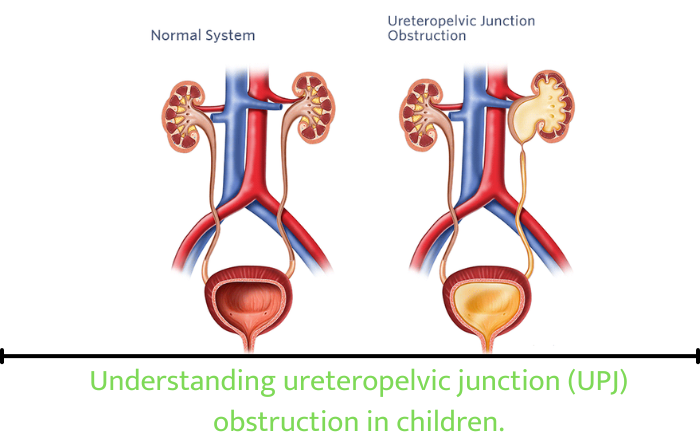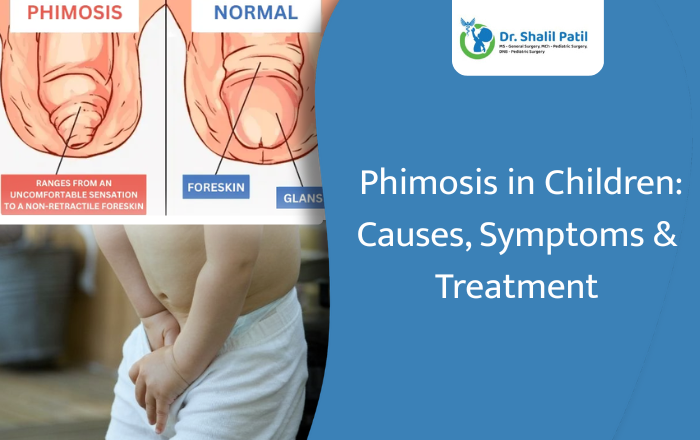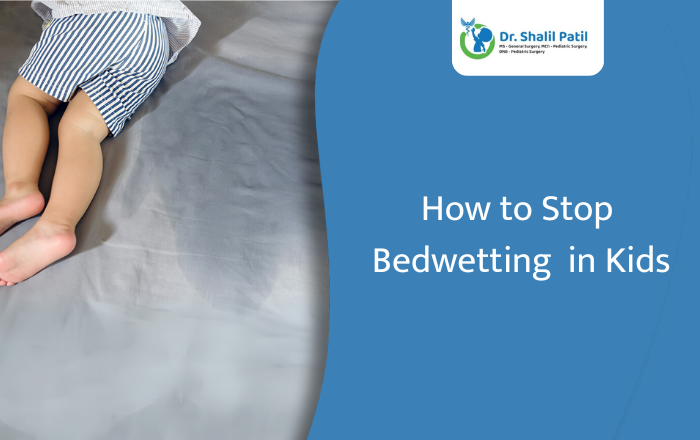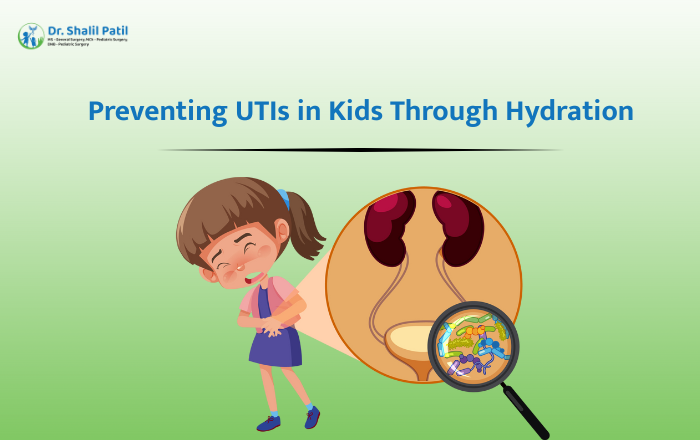As a parent, you naturally worry about your child’s health, especially when something seems off. If your child is experiencing repeated urinary tract infections or unusual abdominal pain, it’s important to know about conditions like ureteropelvic junction (UPJ) obstruction. This condition affects how urine flows from the kidney to the bladder, potentially leading to kidney damage if left untreated. In this article, we will explore UPJ obstruction in children, from its causes to treatment options, so you feel informed and prepared to take the next steps. Dr. Shalil Patil, a trusted pediatric surgeon in Virar, has helped many children recover from UPJ obstruction with the right approach to care.
What is Ureteropelvic Junction (UPJ) Obstruction?
Ureteropelvic junction (UPJ) obstruction is a condition where there is a blockage at the junction between the kidney and the ureter (the tube that carries urine from the kidney to the bladder). This blockage slows or stops the flow of urine, causing it to build up in the kidney. Over time, this can lead to swelling of the kidney (hydronephrosis) and damage to the kidney tissue.
The condition is often congenital, meaning that children are born with it, but it can also develop later due to scarring, kidney stones or injury. Early detection and treatment are key to protecting your child’s kidney health.
Causes of UPJ Obstruction in Children
UPJ obstruction can occur for a number of reasons. In most cases, the condition is present at birth due to abnormal development of the ureter or kidney during pregnancy. Some of the most common causes are
1. Congenital abnormalities: Narrowing of the ureteropelvic junction due to abnormal development.
2. Blood vessels: An extra blood vessel crossing the ureter can compress it and cause an obstruction.
3. Scarring or injury: Previous infections or surgery can cause scarring that blocks urine flow.
Understanding the cause of your child’s UTI will help determine the appropriate treatment plan.
Symptoms of UPJ Obstruction in Children
The symptoms of UPJ obstruction can vary depending on the severity of the blockage. Some children may not show any signs, while others may experience:
1. Pain in the abdomen or side, especially after drinking fluids.
2. Recurrent urinary tract infections (UTIs).
3. Nausea or vomiting.
4. Blood in the urine (hematuria).
5. A mass in the abdomen that you or a doctor might feel.
6. Slow growth or failure to thrive in infants.
If you notice these symptoms, consult a pediatric specialist as soon as possible to prevent long-term complications.
How is UPJ Obstruction Diagnosed?
Diagnosing UPJ obstruction usually involves imaging tests to evaluate the kidney and ureter. Your doctor may recommend one or more of the following:
- Ultrasound: A safe, non-invasive imaging test to detect swelling in the kidney (hydronephrosis).
- MAG3 or DTPA scan: These tests assess how well the kidney is functioning and how effectively urine is draining.
- Voiding cystourethrogram (VCUG): This test checks for urine reflux from the bladder back into the kidneys.
- MRI or CT scans: In complex cases, these can provide detailed images of the urinary system.
Early and accurate diagnosis is vital to determining the best treatment option for your child.
Read More Blogs – What to Eat and What Not- After Appendix Removal Surgery
Treatment Options for UPJ Obstruction
The treatment for UPJ obstruction depends on the severity of the condition. Mild cases may simply require monitoring, but more severe blockages often need surgical intervention.
1. Observation: In some cases, especially in infants, mild UPJ obstruction may improve on its own as the child grows. Regular ultrasounds will monitor kidney function and drainage.
2. Surgical correction (pyeloplasty): This is the most common treatment for severe UPJ obstruction. The procedure involves removing the blocked portion of the ureter and reattaching the healthy sections to restore proper urine flow.
Pyeloplasty has a high success rate, and most children recover well, with their kidney function preserved.
Why Choose Dr. Shalil Patil for UPJ Obstruction Treatment?
When it comes to your child’s health, you want a specialist you can trust. Dr. Shalil Patil, a pediatric surgeon in Virar, has extensive experience treating conditions like UPJ obstruction in children. Parents appreciate his thoughtful approach and commitment to ensuring the best outcomes for young patients. Dr. Patil’s expertise can help your child recover and thrive.
After treatment, most children go on to lead healthy lives. However, follow-up care is crucial to monitor kidney function and ensure proper healing. Here are some tips for post-treatment care:
- Attend all scheduled follow-up appointments and imaging tests.
- Watch for signs of recurring symptoms, such as pain or UTIs.
- Encourage your child to stay well-hydrated to support kidney function.
- Provide a balanced diet to promote overall health and recovery.
Your doctor will guide you on what to expect during recovery and how to address any concerns.
Frequently Asked Questions (FAQs)
1. How serious is UPJ obstruction in babies?
If untreated, UPJ obstruction can lead to kidney damage or failure. Early diagnosis and treatment help prevent long-term complications.
2. What are the risks of untreated UPJ obstruction in children?
Untreated UPJ obstruction can cause kidney swelling, infections, and permanent kidney damage.
3. Can UPJ obstruction be treated without surgery?
Mild cases may only require monitoring, but severe cases often need surgery to restore normal urine flow.
If you suspect your child may have UPJ obstruction or you have questions about their symptoms, schedule a consultation with Dr. Shalil Patil in Virar. Taking the first step towards understanding and treating this condition can make all the difference to your child’s health and well-being.





